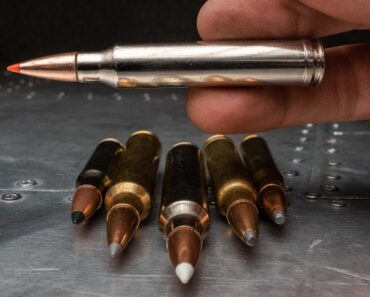Prepping isn’t about just collecting supplies and gear, it is actively changing one’s mindset to be prepared for anything.
This lifestyle is absolutely essential for catastrophes of any kind, so here is a look at 22 tips that separate the successful preppers from those that may be woefully unprepared.
1. Stock Your Car
Everyone in your family should have a bug-out bag, but it is not going to be practical to carry it at all times. As an addition to a BOB, create a well-rounded car kit for every vehicle at your house with enough supplies for at least 72 hours.
Click here to see the 10 best bug out vehicles.
2. Create Clear Goals
While having enough food and energy for a few weeks or months is a great place to start, long-term goals are also a necessity. Start considering what your family’s goals might be all the way up through a few years such as changing your living location.
3. Make Family Communication a Priority
Even a great plan will fall through the cracks if a family cannot properly communicate. Have multiple failsafe plans for connecting with one another no matter your locations. As an added bonus, have multiple plans if you cannot reach one another.
4. Stock Foods You Like
Few things will bring down morale as quickly as day after day of bland meals. Take some time to taste test foods that you plan on saving and then rotate them out well before the expiration.
5. Learn Alternate Uses for All Your Prepping Products
Almost everything that is saved for prepping should have multiple purposes. Simple steps such as saving a bag of dryer lint makes for unbeatable fire starting material.
6. Get Extended Family Involved
Your immediate family is most likely a priority, but including other members of your family will give you a fresh perspective. Don’t forget about creating a plan for any disabled or elderly family members.
7. Keep a Supply of Medication Everywhere
Outside of a few basic necessities, medication is going to be one of the most important items to have on-hand. A multiple day supply should be kept at work, in the car, and in your wallet or purse.
8. Go Overboard with Your Water Supply
If there is any spare room on your property or in your car to store water then use it. A few clean old soda bottles can be turned into a multi-day water supply for practically nothing.
Recommended: How To Store Water for Long Term Emergencies
9. Weekly Inspections
You may not need to do an exhaustive inventory every few days, but a quickly weekly inspection and thorough monthly inspection should be on the agenda.
10. Always Think Redundancy
Every single vital item should be included in multiple packs or included multiple times in a single pack. Items like matches or a fire steel can be stashed in multiple places and add almost no weight.
11. Keep TP Everywhere
Almost anything can be used as toilet paper, but why not make your life a little easier after a disaster? Stash TP in 2 gallon bags throughout your home and keep at least one package of tissue in very bag as well as the car.
12. Practice with Your Gear
Some prepping gear is not as intuitive as others and having the family practice with it all a few times a year is a great idea. A solar heater may be a great invention, but they are not always the easiest device to figure out on the fly.
13. Be A Good Neighbor
You do not need to become best friends with every single person on your block, but take some time to get to know them. You never know when a few extra people on friendly terms will become invaluable.
14. Create a Mini Lumberyard
Just as important as having some basic tools is to keep a stock of extra supplies for building and crafting. A mini lumberyard can be a few jars of fasteners, bolts, wood glue, sealant, and nails.
15. Use Bleach and Iodine
When you have doubts about the safety of a water source, purify it. A drop of bleach and iodine drops will kill the germs and help with the taste more than iodine tablets.
16. Test Your Bug Out Bag
Preppers should always be looking for ways to maximize the weight of their bug-out bag and ensure that they can wear it for extended periods. Take it out, unpack it, pack it, and wear it around while doing chores to see how it feels
17. Keep Fit
Maintaining your own health and the health of your family is another vital step of successful prepping. Always take some extra time every week to get in some exercise with a focus on strong cardio.
18. Consider Bartering Items
A disaster could result in the collapse of the modern economy, so start considering some bartering items. Think of items you would find valuable after a catastrophe and then buy extras specifically for bartering and trading.
19. Swap Out Old Batteries
Keeping a running list of all items in you kit that use batteries and tag the list with the date when new batteries are put in. Plan on changing out unused batteries every few months.
20. Research the Flora and Fauna Around You
As you begin preparing your family and home, take some time to explore the land around you. Get to know some good fishing spots, where fresh water is, and what local plants are edible.
21. Invest in Good Maps
This is one area that preppers often skimp on, but a good map can make all the difference. Have a few copies of city, county, and state maps that are tear and water-resistant.
22. Upgrade to a FRS/GMRS Radio
CB radios can quickly become filled with chatter and are not very secure. Instead, upgrade to a set of FRS/GMRS radios. These can often be extended up to 3 or 4 miles with encryption features for the top brands






